nOH Champions share critical information for care partners of patients with Multiple System Atrophy (MSA)
Disclaimer: This post was sponsored by Lundbeck and the opinions are my own.
Today, I would like you to meet two women, Jenna and Kara, who have inspired me and touched me deeply with their commitment to family.
I am partnering with Lundbeck to share information about Multiple System Atrophy (MSA) and Neurogenic Orthostatic Hypotension (nOH) through recognition of Lundbeck’s nOH Champion program. The family I was honored to meet and interview certainly deserves the title “champions.”
Most daughters look up to and esteem their fathers, and that certainly was the case for Jenna, Kara, and Lexi in regard to their father, Marc. Marc was a charismatic figure and lived a successful life as a businessman, professional speaker, Olympic-level junior hockey player, husband and father to three. He certainly made an impact on his daughters, who quote his motto often, “there is no substitution for preparation.” Going forward, they would learn how important that motto was for their family.
Marc’s zeal for life was electric, and when symptoms of his illness began to surface in 2011, he fought the fact that something was wrong and hid the symptoms he was experiencing from his family as long as he possibly could.
However, the condition he was battling (though it had not been diagnosed officially just yet) was MSA, a rare neurological disorder that causes problems with movement, coordination, and involuntary body functions, such as blood pressure control. MSA, also called Shy-Drager syndrome, results from ongoing damage to several areas of the nervous system. It has similarities to Parkinson’s disease, but MSA progresses faster than Parkinson’s and has additional symptoms. MSA is typically first seen in people in their 60s.
Though Marc was beginning to experience the symptoms of lack of balance and coordination, he was still traveling to meetings all over the country, as well as speaking engagements, and did not wish for clients or family to know there were issues. Jenna said, “He was a stubborn guy and was a very private person when it came to sharing information.”
However, MSA is a quickly progressing, debilitating disease, and soon Marc’s symptoms could no longer be hidden. On top of neurologic issues, Marc also began to pass out completely on a regular basis. Sometimes he would be with family and sometimes with business associates. There were times he lost bodily functions at the same time he would faint.
nOH ENTERS THE PICTURE
Finally, in 2015, after episodes where Marc would pass out and hit his head, break ribs, and obtain bruises, his family convinced him to seek medical help and testing. His neurologist and internists recognized a serious problem with low blood pressure, but despite confirming the MSA diagnosis, the doctors did not recognize the symptoms as nOH at first. It would be his daughters who learned of nOH at a seminar later and would return to educate most of his doctors.
nOH is a lesser-known condition that affects 4 out of 5 people with MSA, and its symptoms include dizziness, lightheadedness, blurry vision and weakness after standing. In a survey of patients with nOH and their care partners, 87% of patients said that nOH symptoms had an overall negative impact on their ability to perform daily activities.
After a person stands up, gravity pulls the blood to the lower part of the body, lowering the blood pressure. When this happens, the nervous system typically releases a chemical called norepinephrine, which controls and can elevate blood pressure. In a person with symptomatic nOH, the body may not release enough norepinephrine, causing blood pressure to remain low after standing, which may result in symptoms like dizziness, lightheadedness, blurry vision and fatigue.
The daughters wished they had known about nOH in the beginning and felt like it would have been so helpful since their care plan was to manage symptoms and help him to live as vibrant a life as possible. Many think the symptoms of nOH are part of their MSA; however, nOH is a separate condition with symptoms that also need to be managed. nOH caused Marc’s blood pressure to become low every time he moved, so constant moment-to-moment care was required.
Ultimately, Marc’s zest for life served him well. “Our dad had the strength of a warrior and wanted everyone to know he had a condition…not a disease,” shared Kara. Though wheelchair bound, he even went to eat at his favorite deli two days before passing. He made the choice to live each day well no matter what challenges he would also face that day.
FROM DAUGHTER TO CARE PARTNER
Marc’s three daughters were all in their twenties when he was diagnosed. Kara was a sophomore in college; Jenna had just started a new thriving business (her dad was her business mentor); and Lexi had completed a teaching degree and was set to be an elementary school teacher.
However, when they were needed, they willingly left their worlds and began a new life with shared responsibilities as care partners. They agreed that though Jenna would be the primary care partner, all would share the load and be there for support when possible. During this time, Jenna was also diagnosed with Multiple Sclerosis, but this brave young woman kept the focus on her dad and not herself.
“We let each other know when we needed a break,” Jenna said. “Close, open communication in a family is so important. We believe our family care helped extend dad’s life because we were able to provide all the support he needed. We had to become each other’s rocks, and now see that it made us stronger and closer.”
ADVICE FOR CARE PARTNERS OF A FAMILY MEMBER WITH MSA AND nOH
In visiting with Marc’s daughters, it is evident they are intelligent young women who spent much time studying and educating themselves about what was happening with their father. A natural result has been to advocate for other families and help other care partners be prepared.
“It is exhausting and an ugly, rapidly progressing disease,” Jenna said. “They must be prepared for all they will face and the possibility they may be dealing with more than one disease.” MSA is so debilitating that there is a lot of involvement required from care partners emotionally and physically.
They recommend:
- Always make sure the patient is in the driver’s seat and receives a proper diagnosis and care plan. You must ask a lot of questions and make sure the patient’s own questions are also answered. Bring a notepad or recording device to every doctor appointment as the information will inevitably overwhelm you and you want to walk away knowing what the doctor said.
- Allow the patient to live their life as much as possible. If they want to go somewhere or see other people, do all you can to make that happen. Make special memories with meals, laughter, shared memories from the past, music, anything that puts smiles on the person’s face.
- Have the tough conversations while they can talk. With MSA, the patient ultimately loses their speech; therefore, the care partners become their voice. Jenna and Kara discussed how Marc wanted his life celebrated once he was gone, while he could still talk. They are seeing his wishes through to fruition and a Celebration of Life is underway.
- Set out specific care guidelines and emergency plans for anyone who might be assisting with the patient at home. Have a Physician Orders for Life-Sustaining Treatment (POLST) readily available in case of an emergency.
- Caregiving burnout is real. You must have a support system who you can call when you need a break. Make sure to take care of yourself with proper eating, rest and exercise.
- You will need more patience than ever imagined.
- Sometimes you will need trained professionals to step in and help to provide unbiased support to a family of care partners.
- Everyone must be on the same page as the patient and respect the patient’s wishes.
- Join a care group…you will need it. These ladies now provide support groups with equipment lists to help manage MSA and nOH and resources to study.
- Finally, they recommend searching the community for the best trained ER Nurses who are available to provide guidance as you setup the patient’s living environment and care plan.
It is obvious the love these young ladies had for their father. They were determined to do more than care for him. They were determined to make each remaining day special and memorable with as little stress as possible.
“Our childhood was beautiful, and all we wanted was to give back the same care and love to him.”
MSA and nOH are rare disorders that typically affect elderly adults. It is important to be aware of the symptoms and be ready to ask the right questions. You can learn more at nohmatters.com.
Thank you to Lundbeck for introducing me to these remarkable young women. I wish all children would be ready to care for the adults in their family, if needed, with this much love.
Meeting them certainly helped me to….
KEEP SMILING!
By Pamela Lutrell
© 2021 Lundbeck. All rights reserved. UBR-D-100908
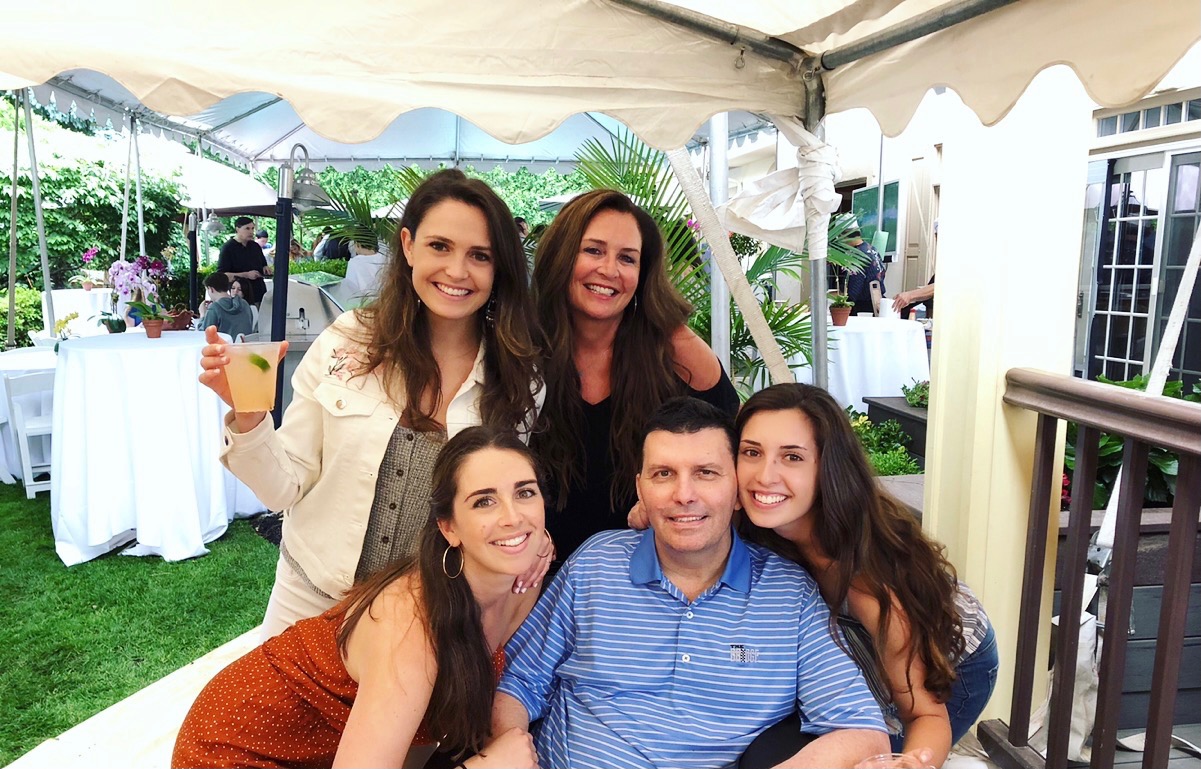
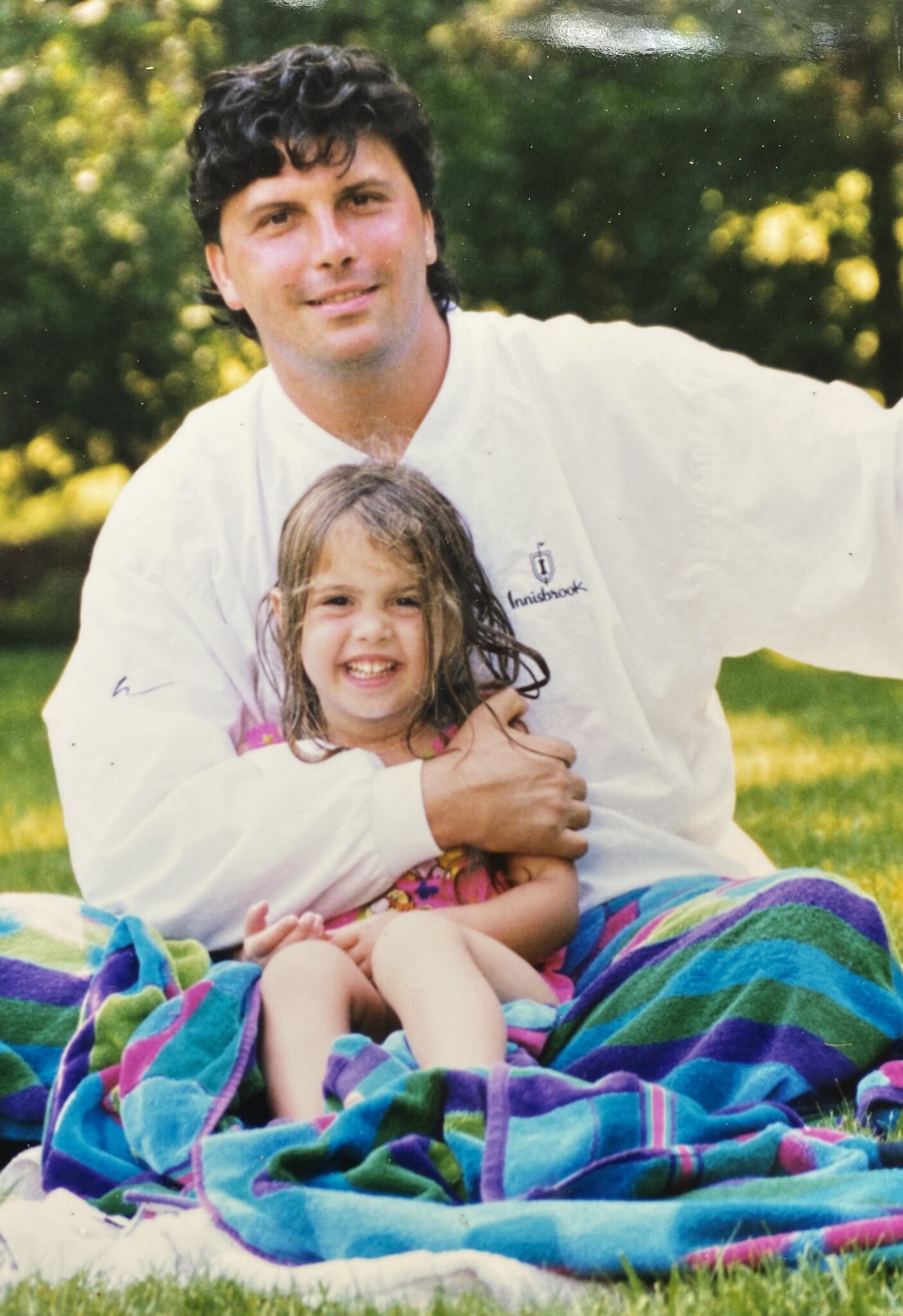
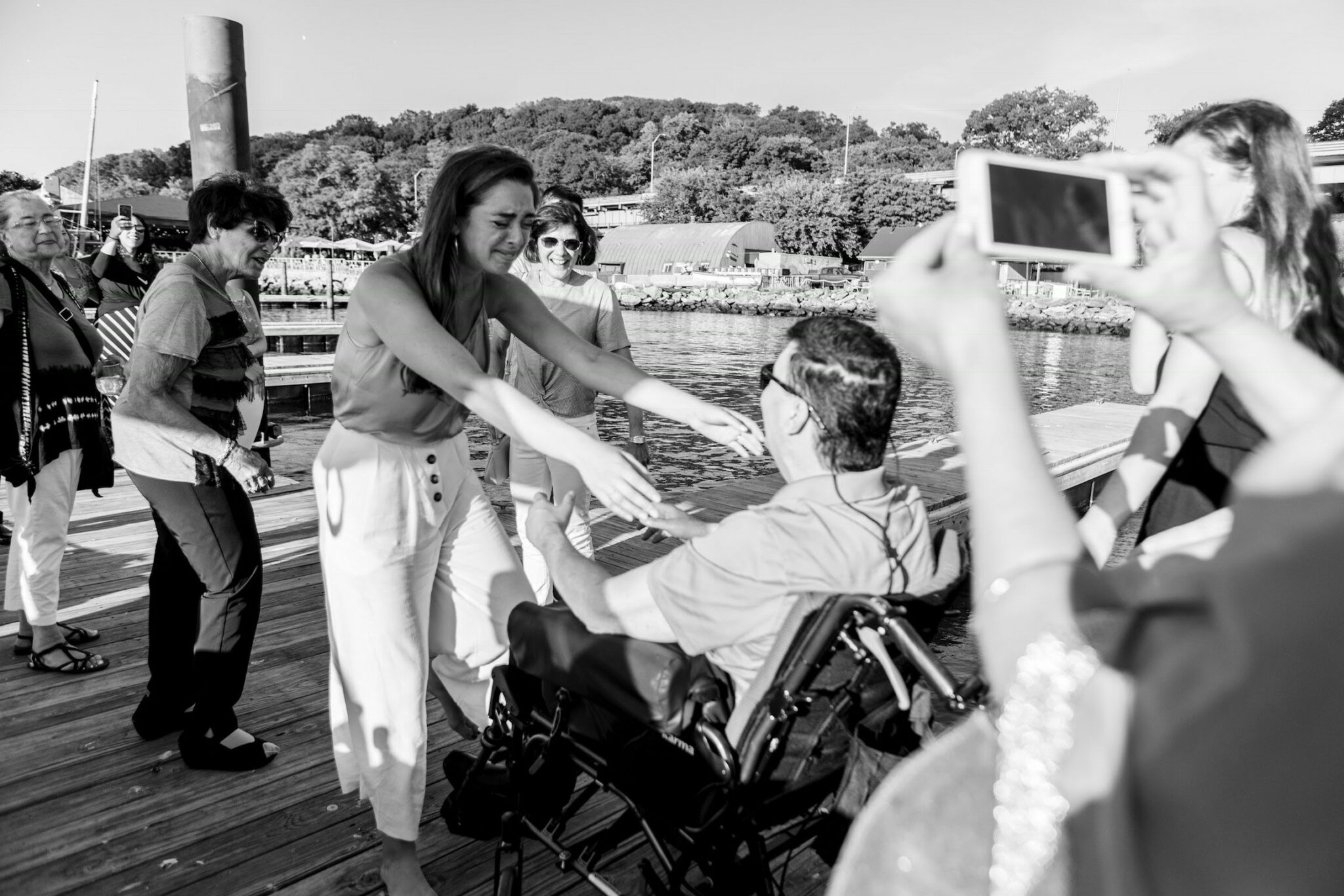
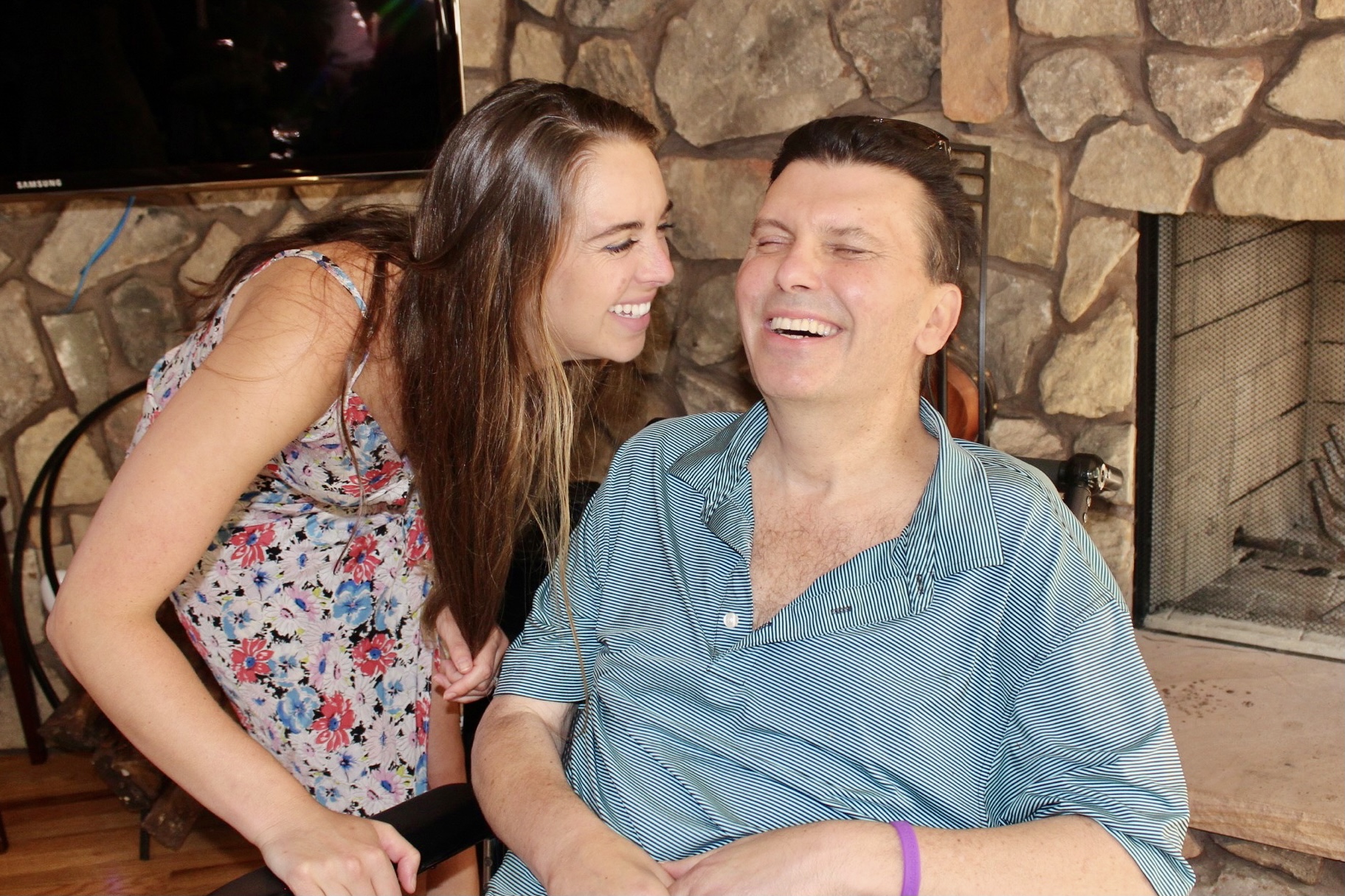
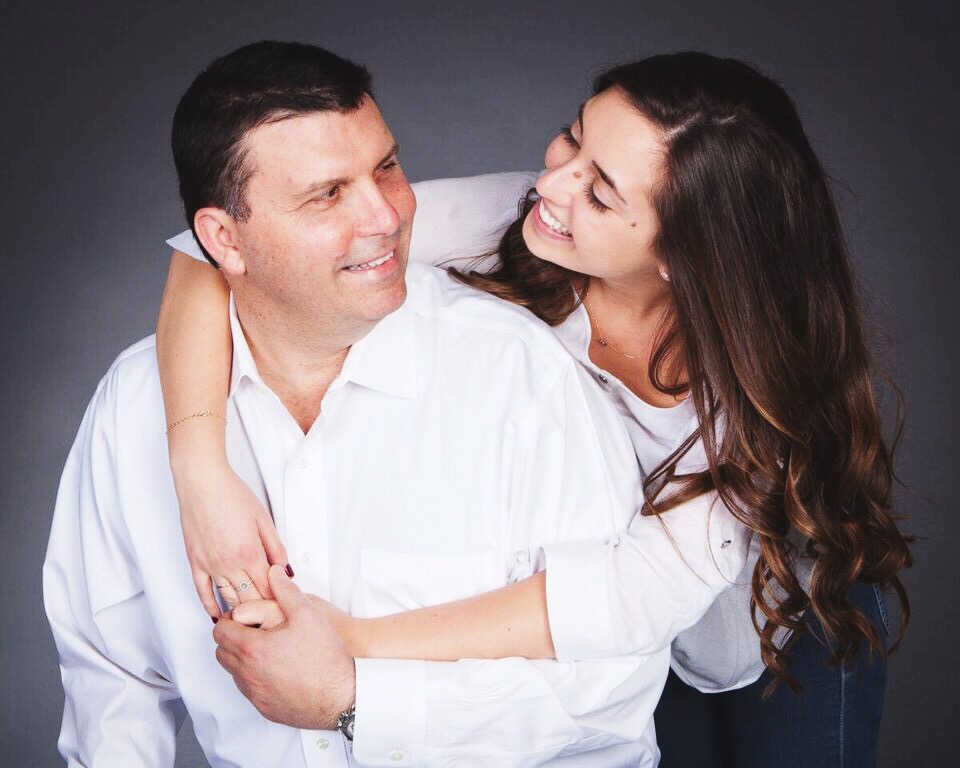
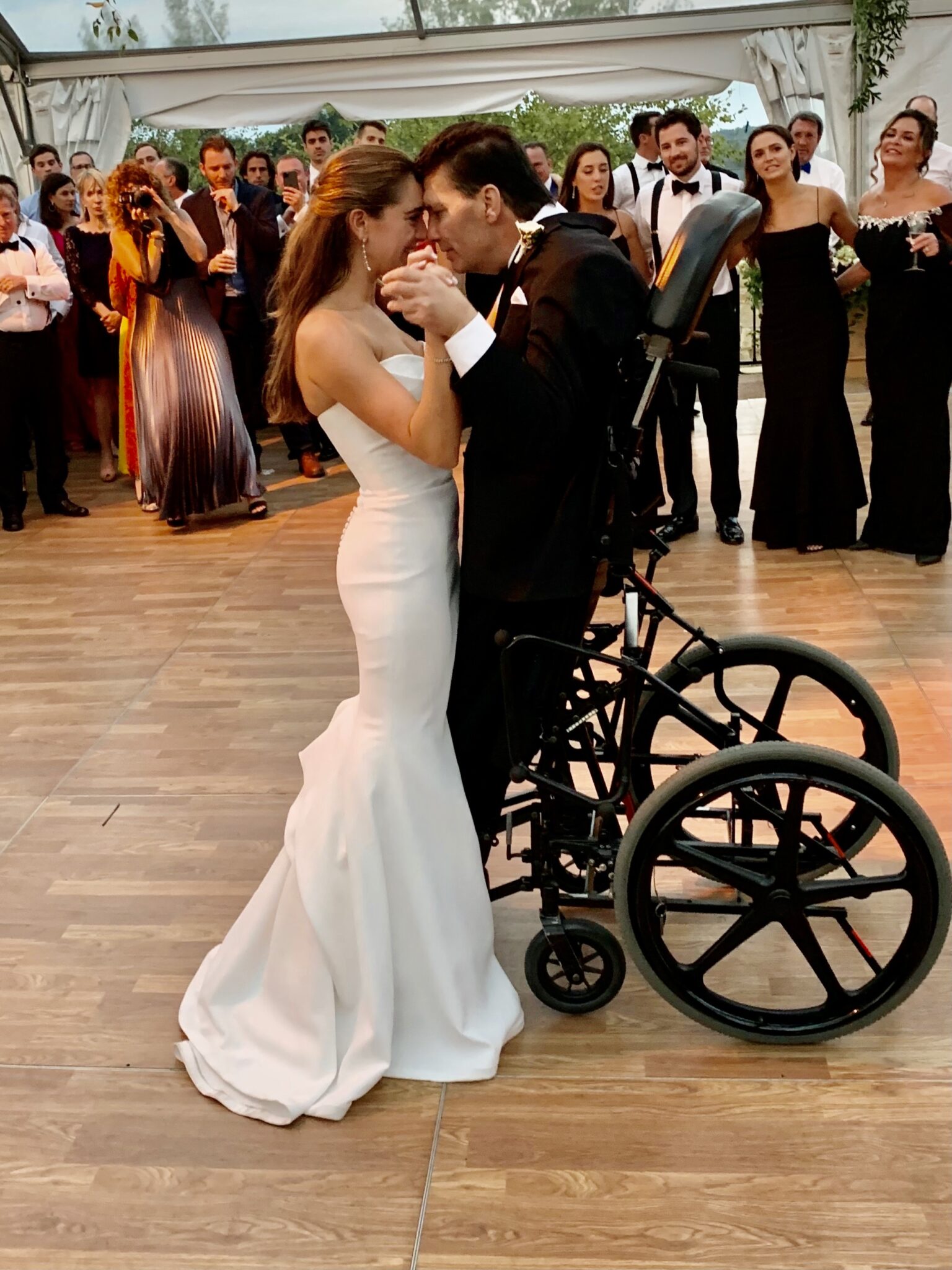
What a beautiful story. Their dad must have been a wonderful father to have earned so much love and respect from his children. I will always strive to be that parent for as long as I draw breath. I had no knowledge of this condition, though my father had Parkinson’s. I wonder if this one is missed a lot because it’s easy to see crossovers from one condition to another. You really do have to stay on these things and get the answers you need, and to advocate for the person who is losing the ability to advocate for him or herself. Wonderful that these young ladies can move into their futures knowing they did all they possibly could to enhance their dad’s life.
These girls inspired me so much, Karen. Thank you for sharing about your dad.
What a wonderful example of love and devotion! We parents may joke about our children caring for us as we age, but we may not really expect such dedicated care as these young ladies have provided to their father. Like Karen, I was not aware of these two neurological conditions, and am grateful to know about them in case that knowledge is needed for anyone I know. As we age, we must be cognizant of changes in our bodies that affect our continued health. God bless Marc and his loving daughters as they care for him.
Thank you for this wonderful informative post. I don’t have the right words at the moment but just thank you for sharing.
What a lovely testament to family. God Bless those girls.
Such devoted and dedicated children whom IMO are definitely earning ‘their angel wings’. -Brenda-
One of our dear friends I went to high school and college with has this disease. I was unaware of it until we reaquainted on social media. I had thought he had Parkinsons, which two other close friends have. I am in awe of the love and dedication of his wife and family. Linda traveled the world with Doug and often expresses her gratitude for all the places they have seen while he was still able. Despite his condition, she continued to travel taking on the additional work of seeing to his needs in unfamiliar environments when it would have been easier to stay at home as he lost his mobility. Doug seldom leaves home these days, so for his pandemic birthday last month, his children announced a drive-by parade at their home in Chico. Old friends, family and unknown well-wishers participated and it was televised on the local news. I cry for Doug now, not only for his challenges, but because of the love of his family and the heartfeld example they have shown all us–the true meaning of devotion.
I agree, Celia…it is so good to be educated, because we never know who might need the information for. Thanks for sharing…Marc’s family was a blessing to me.
You are welcome, Diane.
Amen…May He bless them abundantly!
Yes they are…very impressive young women.
What an inspiring story of devotion and love! Sadly I have had experience of dealing with protracted terminal illness with two husbands. To the advice above I would add get hospice involved when possible as soon as possible. It is not a death sentence to have hospice and the help they can give is priceless both for the patient and the family. Many families wait too long and this is a mistake. Hospice can do home care as well as hospital care. Medicare and most insurance will pay for this invaluable service.
Connie, thank you for sharing Doug’s story. Sounds like he has a wonderful family as Marc did…this helps and inspires others to do the same even amidst great difficulties.
Thank you for sharing Jill…I believe this is important information.